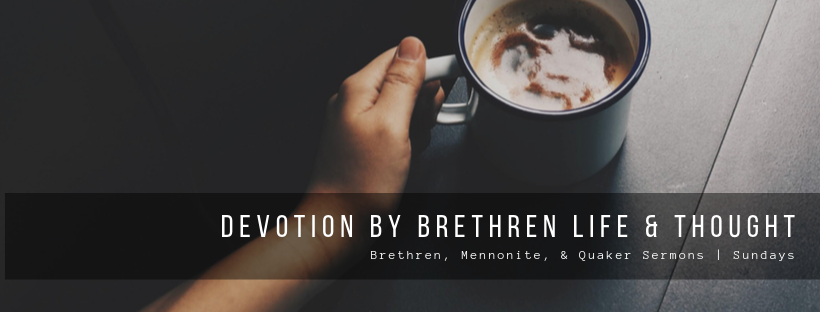
What do I mean by “that old-time religion?” I mean dethroning self so that God can be God. The self is not competent to rule creation or any part of it. God is.
In the Gospel of John, Jesus says He came not to do His own will, “but the will of him that sent me” (John 6:36 AV). He taught His disciples to lay down self-will in the same manner. This implies that God has a will and that God is supremely wise and good, so that it’s better for all creation that God’s will be done, than that any one of the individual creatures get its will done in defiance of God’s. Many saintly souls, whether following Jesus or Muhammad or Krishna, have lived and died for such a truth – if truth it is.
I think we’d all know without a doubt that it is truth, with the kind of heart-knowledge by which bees know flowers and bears know honey if it weren’t for fear. Love casts out fear, but fear casts out love, too, and draws a tight little circle around self. Unfortunately, we fear God. We distrust God. There are verses in the Bible where God is portrayed as wrathful and scary: God throws liars and sinners into the Lake of Fire in Revelation 21:8, and we all know that life on earth can be wrathful and scary, so why shouldn’t the Creator of this scary place be wrathful and scary too? We’re commanded to “love” God, but hey, why should we? In fact I’ve been told that it’s been proven that God can’t be both almighty and good. Identify God with power and God wills or allows those horrible events we call “acts of God.” Identify God with goodness and you see a struggling god who hasn’t quite perfected creation yet, and needs our help. In Archibald MacLeish’s play J. B., a Satan-character taunts us with the jingle
If God is God He is not good
If God is good He is not God.
And yet, in spite of these temptations to skepticism, there have been many souls who’ve renounced self-will for the sake of God’s will, who then make astounding claims like “We know that all things work together for good for those who love God” (Rom 8:28 NRSV). Such claims imply that a kind of knowledge can be obtained, or awakened, in which God is revealed as both omnipotent and good. Now most people undergoing this awakening would probably be modest and call their knowledge “faith” rather than “knowledge,” but whatever it is, they trust it as they would trust positive knowledge because they feel its rightness. Now there is a kind of universal folk-wisdom that the pure see all things as pure, while the wicked see danger everywhere (e.g., Ps 18:26, Bhagavad-Gita 18:20-22). How can anyone see purity, we wonder, when the world is so full of evil? There must be some inner receptor that does not deny the evil, but sees or senses beyond it! How can it be awakened? Does one have to take a leap of faith and surrender self-will first? How do the self-surrendered know that their Creator is Love Itself (1 Jn 4:8, 16), at once almighty (Gen 17:1), the only good (Luke 18:19), the only wise (Rom 16:27)? Terrible and painful things are allowed to happen within creation (and God must feel all the pain, or else God can’t be omniscient), but somehow, in the end, we trust that God pronounces the creation “very good” (Gen 1:31) and wipes away all tears from our eyes (Rev 21:4). Who else would be worthy of having their will be done than the One that can do this?
Isaiah (30:21 NRSV) prophesied, “when you turn to the right or when you turn to the left, your ears shall hear a word behind you, saying, ‘This is the way; walk in it.’” This does happen to people. If it hasn’t happened to you, ask yourself whether your dethroning of self is complete yet. Better yet, ask God to help you complete it.

John Jeremiah Edminster (M. Div., Earlham School of Religion, 2019) lives in Richmond, Indiana with his wife Elizabeth, where they host a midweek Christ-centered Quaker meeting for worship in their home. He pastors a small congregation in a residence for low-income seniors and persons with disabilities and contributes to the building of the Quaker Bible Index (esr.earlham.edu/qbi/).


